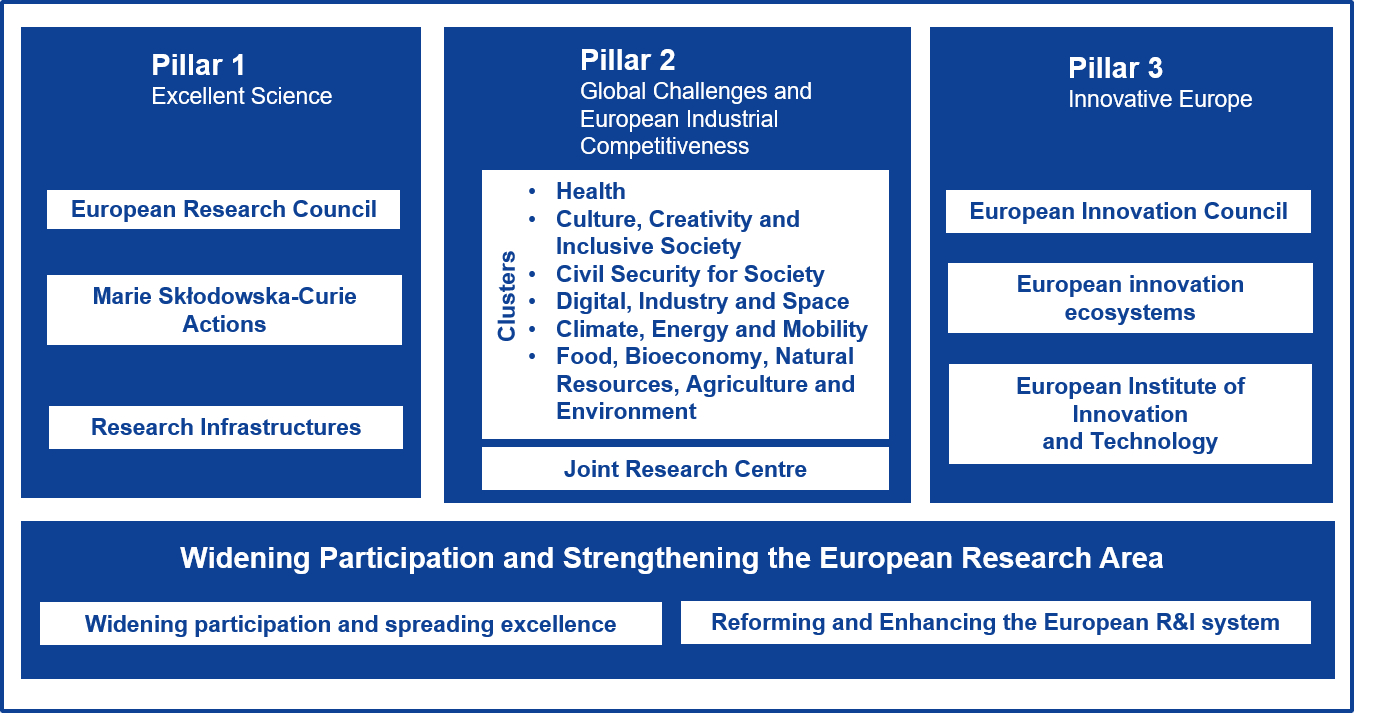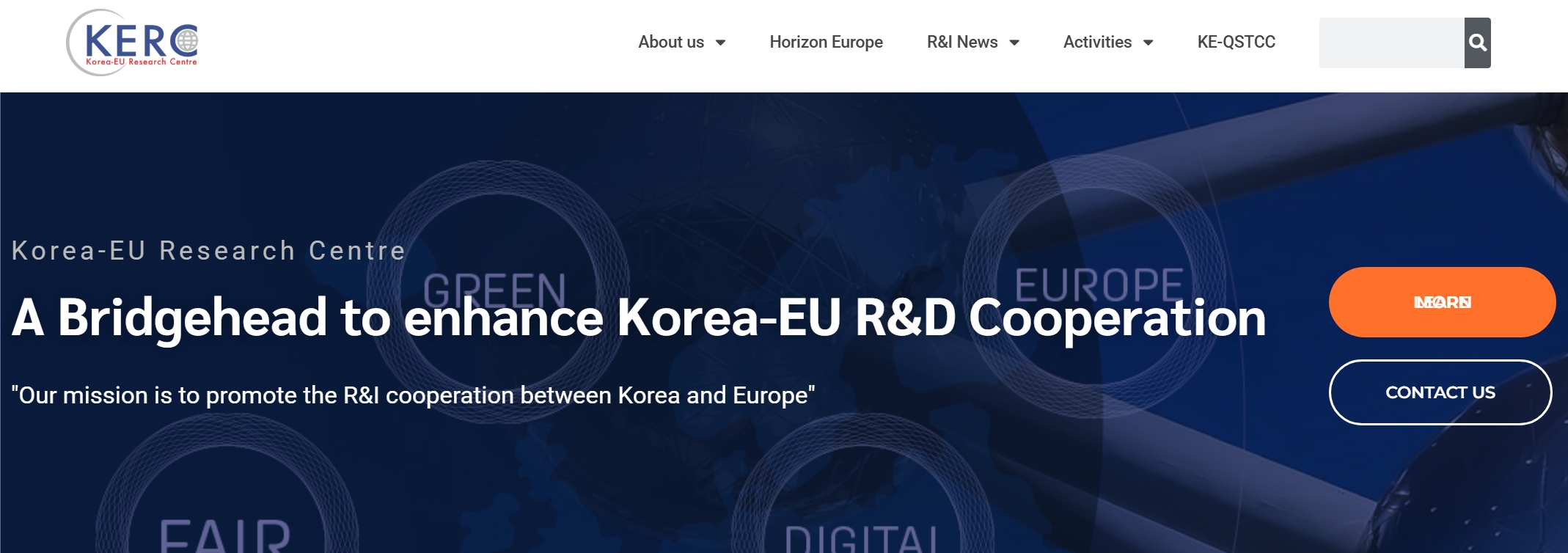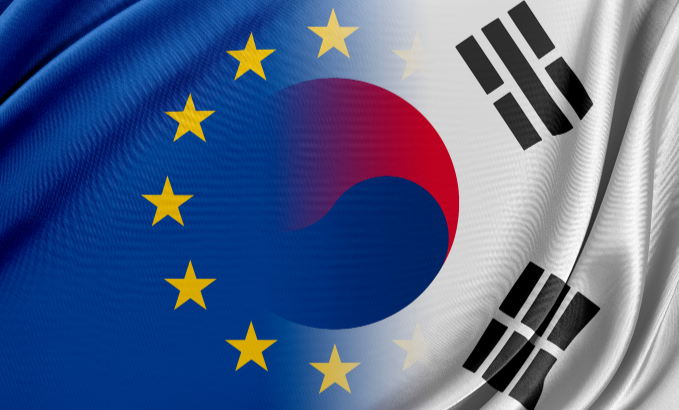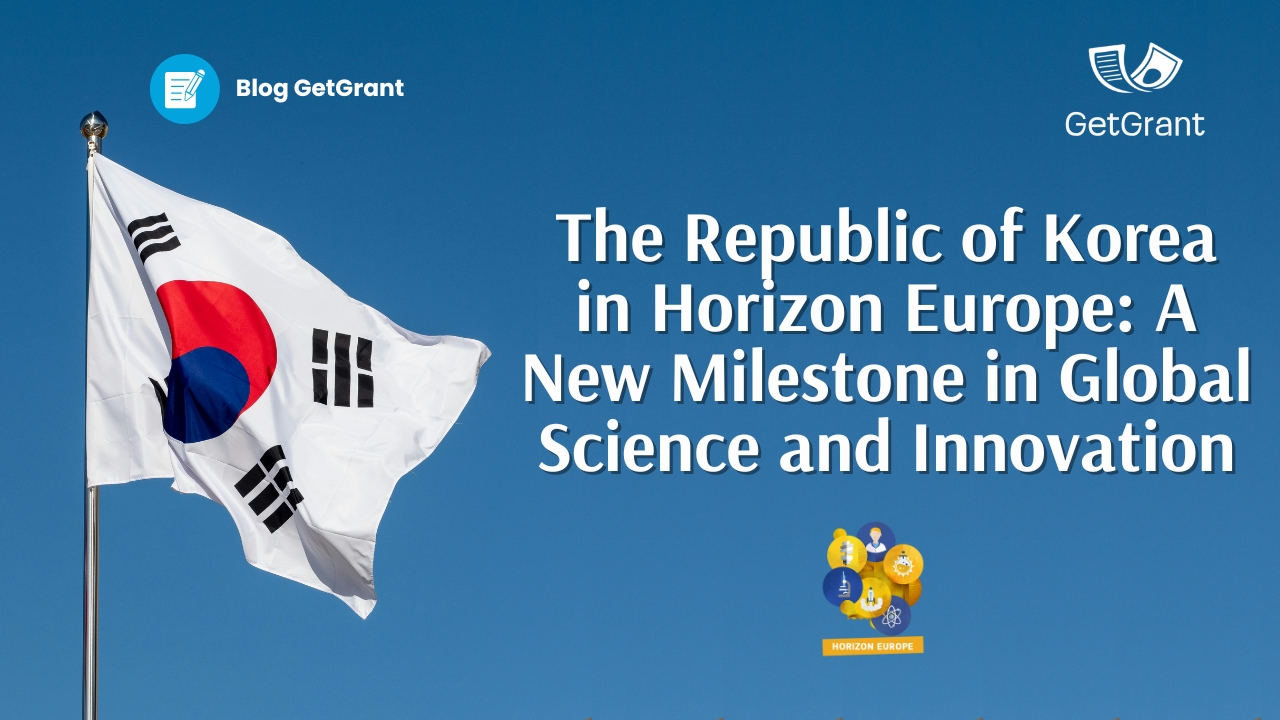On 17 July 2025, the Republic of Korea (South Korea) officially became the first Asian country to join Horizon Europe (Pillar II) – the European Union’s large-scale research and innovation programme with a budget of €93.5 billion for the period 2021–2027. This step opened access for Korean researchers and organisations to participate in projects on equal terms with EU Member States: they can lead international consortia, receive funding, and join forces with leading European institutions to address global-scale challenges.
In her statement, European Commission President Ursula von der Leyen emphasised the strategic significance of Korea’s accession to Horizon Europe:
“A great day for science and partnership! The Republic of Korea has joined Horizon Europe, the world’s largest innovation programme, which we propose doubling in the next EU budget. Together, we’ll drive cutting-edge research – from digital to clean tech.”
As underlined by the European Commissioner for Startups, Research and Innovation, Ekaterina Zaharieva:
“I welcome the Republic of Korea to Horizon Europe. The challenges we face today – from climate change to digital transformation – are global. This association brings together leading minds from Europe and Korea to drive progress and develop solutions that will benefit us all. I look forward to the outcomes of this strengthened partnership.”
The importance of this accession lies not only in scientific cooperation. It is also a step towards closer integration of Korea into the European research area, enabling the country to influence the shaping of the international science and technology agenda while gaining direct access to substantial funding and the EU’s innovation ecosystem. For the European Union itself, Korea’s participation means strengthening science diplomacy, expanding partnerships beyond the continent, and exchanging knowledge with one of the most technologically advanced societies in the world.
Horizon Europe: Architecture of the EU’s Scientific Ambitions
Horizon Europe is the largest research and innovation funding programme in EU history. Its goal is to tackle climate change, support the United Nations Sustainable Development Goals, boost Europe’s competitiveness, and stimulate economic growth. Structurally, the programme consists of three main “Pillars,” each playing a specific role in building a comprehensive scientific and innovation environment:

Pillar I – Excellent Science focuses on supporting fundamental research, with funding provided through the European Research Council, and on developing human potential in science, notably via the Marie Skłodowska-Curie Actions for doctoral and postdoctoral research and international mobility.
Pillar II – Global Challenges and European Industrial Competitiveness is the programme’s largest segment, with a budget of €52.4 billion. This is the pillar the Republic of Korea has joined. It targets global challenges such as climate change, the transition to clean energy, the development of the digital economy, health, and industrial resilience. Participation in this segment grants Korean scientists the right not only to take part in projects but also to lead them, forming international research alliances.
Pillar III – Innovative Europe promotes the commercialisation of research and the growth of startups through the European Innovation Council, supports technological platforms and innovation clusters, and creates favourable conditions for scaling breakthrough technologies.
In one of our previous blog posts, we discussed how to successfully prepare a Horizon Europe application.
Why Korea Became the First Asian Participant in Horizon Europe
The fact that Korea became the first Asian country to join Horizon Europe has several explanations. The country ranks among the global leaders in innovation and possesses a strong research base, particularly in microelectronics, biotechnology, and renewable energy. Furthermore, its political and economic compatibility with EU values and standards makes Korea a natural partner in large-scale research initiatives, as it is a stable democracy committed to upholding human rights.
Cooperation between the EU and Korea already has deep roots – Korea can be considered one of the EU’s closest international partners. It is the only country in the world to have in force economic, political, security, and digital agreements with the EU. These include the Strategic Partnership and Framework Agreement (2010), the Free Trade Agreement (2011), and the Framework Participation Agreement for EU crisis management operations (2014). Since 2007, EU–Korea research and innovation cooperation has delivered more than 177 joint projects. To date, Korea has taken part in 123 projects under Horizon 2020 and Horizon Europe. In addition, the European Commission’s Joint Research Centre works with Korean institutions primarily in the fields of health, metrology, energy and transport, construction standards, as well as nuclear safety and security.

Within bilateral cooperation between the EU and Korea, the Korea–EU Research Centre (KERC) plays an important role – acting as a “bridge” between the research and innovation ecosystems of both sides. The Centre provides the latest information on Horizon Europe, acts as an information hub for sharing news and publications, organises networking events, and offers advice and support to researchers from both countries. KERC also coordinates the activities of National Contact Points (NCPs), helps find partners for grant participation, and prepares reports and studies to support decision-making in science policy and innovation cooperation.

This collaboration has now reached a new level, integrating Korean research institutions into a network that spans the entire European research area.
Shared Priorities and Global Challenges
Korea’s participation in Horizon Europe opens broad opportunities for joint work in areas that will shape humanity’s development in the coming decades. One key area is the digital transition, which includes developing artificial intelligence, advanced computing systems, and cybersecurity solutions. Equally important is health, where cooperation will encompass biotechnology, new treatment methods, and pandemic prevention. Another priority is technologies aimed at achieving carbon neutrality, including renewable energy, new materials, and innovations in industrial decarbonisation.

Such a partnership is not just a technical or scientific project – it is also an important geopolitical signal. In a world where global challenges – from climate crises to digital threats – know no borders, success depends on the ability to pool resources, share expertise, and build a common vision for development.
Comparison with Other Participating Countries
As of July 2025, Horizon Europe includes 20 countries, among them members of the European Economic Area, EU candidate countries, countries of the European Neighbourhood Policy, and third countries meeting specific economic, political, and scientific criteria. Until now, no Asian country had been part of this programme, making Korea’s accession a unique precedent that may pave the way for other high-tech nations in the region. In future blog posts, we will provide detailed profiles of all countries currently associated with Horizon Europe, their status, and areas of cooperation with the EU.
Conclusion
The Republic of Korea’s accession to Horizon Europe is a significant strategic step that unites two powerful research and innovation areas. For the EU, it is an opportunity to strengthen science diplomacy and enhance global competitiveness; for Korea, a chance to influence the international scientific agenda and carry out joint projects with Europe’s strongest research centres. This cooperation is expected not only to deliver breakthrough technological results but also to contribute to the creation of a more resilient and innovative global order.


